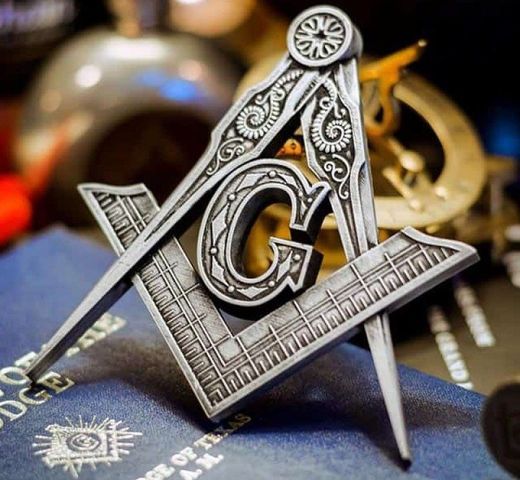Back to: Protected: Introduction to the Fellow Craft Mason Education Course
My Brother:
You have just recently been passed to the Degree of a Fellowcraft Mason, and if you were asked if you were a F.C. Mason you would probably answer, “I sure am”; however, if it were a member of another Lodge who asked you this, he might also ask you to prove it, and then what would you do? You have no dues card or a certificate to show that you are a F.C. Mason, so the only way that you could prove yourself would be to answer such questions as he might ask about the degree. The purpose of this session is to review the F.C. Degree, and explain some of the symbols used, so that you will be able to prove yourself a F.C. Mason if you were to visit another lodge.
You learned that there were two kinds of Masonry, Operative and Speculative. Operative Masons were the stone masons of many years ago who built the great cathedrals and other great buildings in the old world. A group of masons working on a particular building were formed into a “Lodge”. As time went on, the demand for this type of building declined to the point where members were admitted into the Lodge from other walks of life. These were called Speculative Masons. This trend started in the 1600’s, and has progressed to the point where Masonry is now speculative. The first Grand Lodge was formed in England in 1717. The F.C. degree symbolizes man in his working years and emphasizes the dignity and worth of the individual. One of the lectures said that a F.C. Mason has three jewels – the Attentive Ear, the Instructive Tongue and the Faithful Breast which means that you should seek out well informed Brethren, listen to them with an attentive ear, and deposit that knowledge in a faithful breast.
The Plumb and Level, which were tools of the operative craft, are used now as symbols. The Level symbolizes equality, which means that we should consider the internal and not the external qualifications of a man. The Plumb is a symbol of conduct, which teaches man to live an upright life with a good conscience and a sense of right and wrong.
One of the main parts of the F.C. degree is the Middle Chamber Lecture, sometimes called the “stair lecture”, which is a regular ascent up the representation of a flight of winding stairs, consisting of 3, 5, and 7 steps, into a place representing the middle chamber of King Solomon’s Temple. The middle chamber was the room where the workers on King Solomon’s temple gathered to receive their wages of com, wine and oil. Modern Masons use these as symbols of nourishment, health and joy. The winding stairs leading to the Middle Chamber symbolize man’s journey and quest for knowledge and truth, and begin at the two pillars called Boaz and Jachin. The first three steps allude to the three degrees of Ancient Craft Masonry, the next five steps allude to the five orders of architecture and to the five senses of human nature. The next seven steps allude to the seven liberal arts and sciences; Grammar, Rhetoric, Logic, Arithmetic, Geometry, Music, and Astronomy. They are the very foundation of a sound education and we must strive to do our best in gaining this education. This in turn will lead to that Wisdom which we all hope to have as we grow older in life. Wisdom is that quality of judgment that enables us to adapt our knowledge gained by experience and education to a practical solution of the problems of life. Wisdom also helps us to conform our lives to the plans of the Great Architect. The fifth science, geometry, is represented by the “G” which is also the symbol of Deity and is placed in the center of Masonic emblems.
The Middle Chamber represents the completion of a journey wherein the candidate receives his rewards for the labors and ordeals he has endured on his passage. He has reached a goal and will now accept his wages. These wages are nonmaterial, but none the less real, for they are the compensation for his faithful use of his Working Tools, fidelity to his Obligation, and unfailing interest in the study of our Craft.
A Fellowcraft Mason has the right to sit in his Lodge when opened on the F.C. Degree, to visit another Lodge of F.C. Masons, to be instructed; and, if found worthy, the right to ask for advancement.
With rights come responsibilities, and these will be found in the obligations that you took which you should review.


